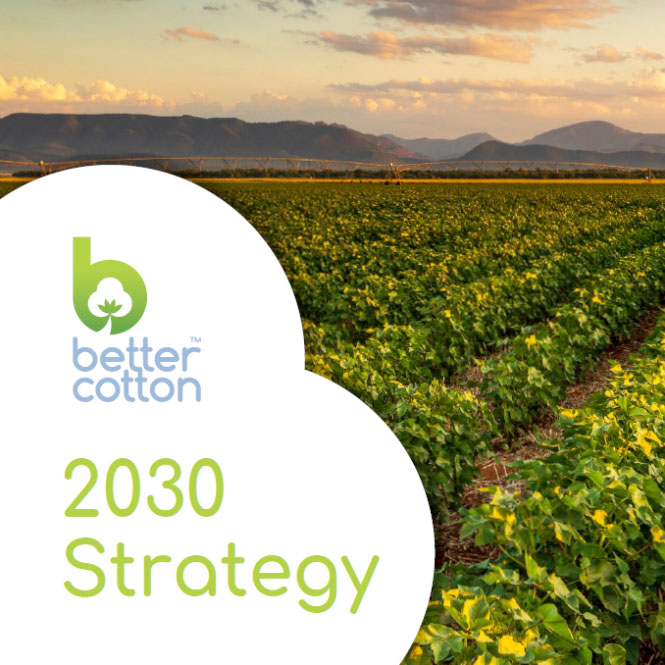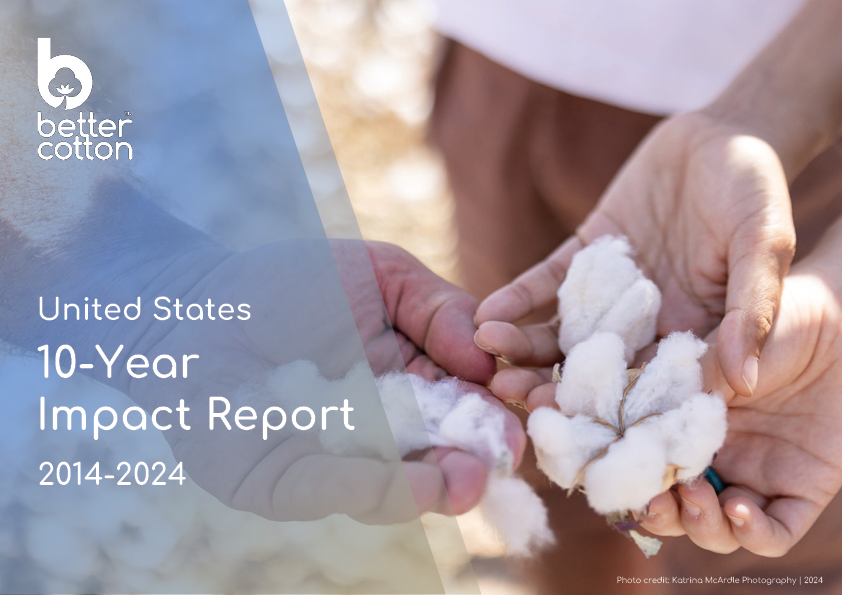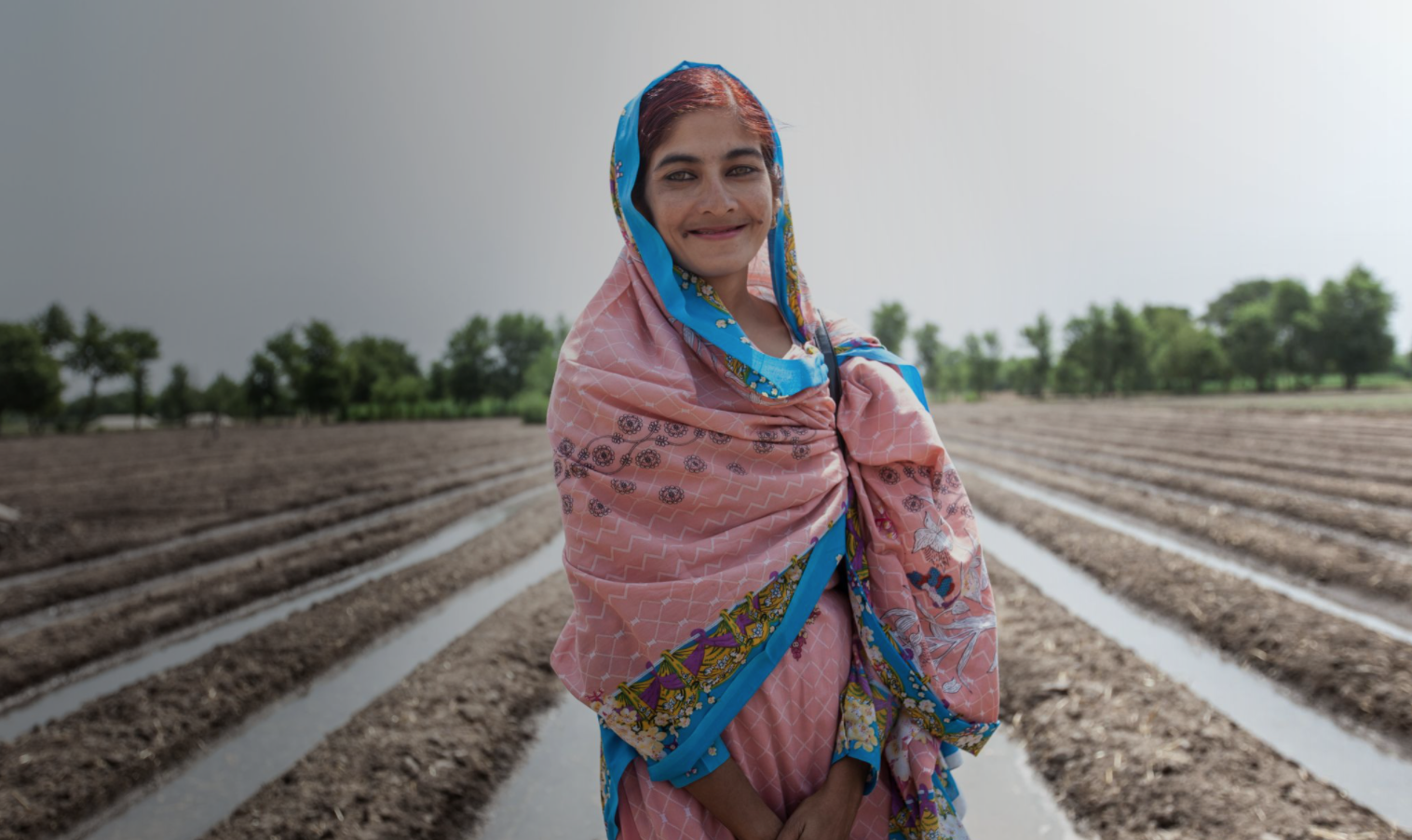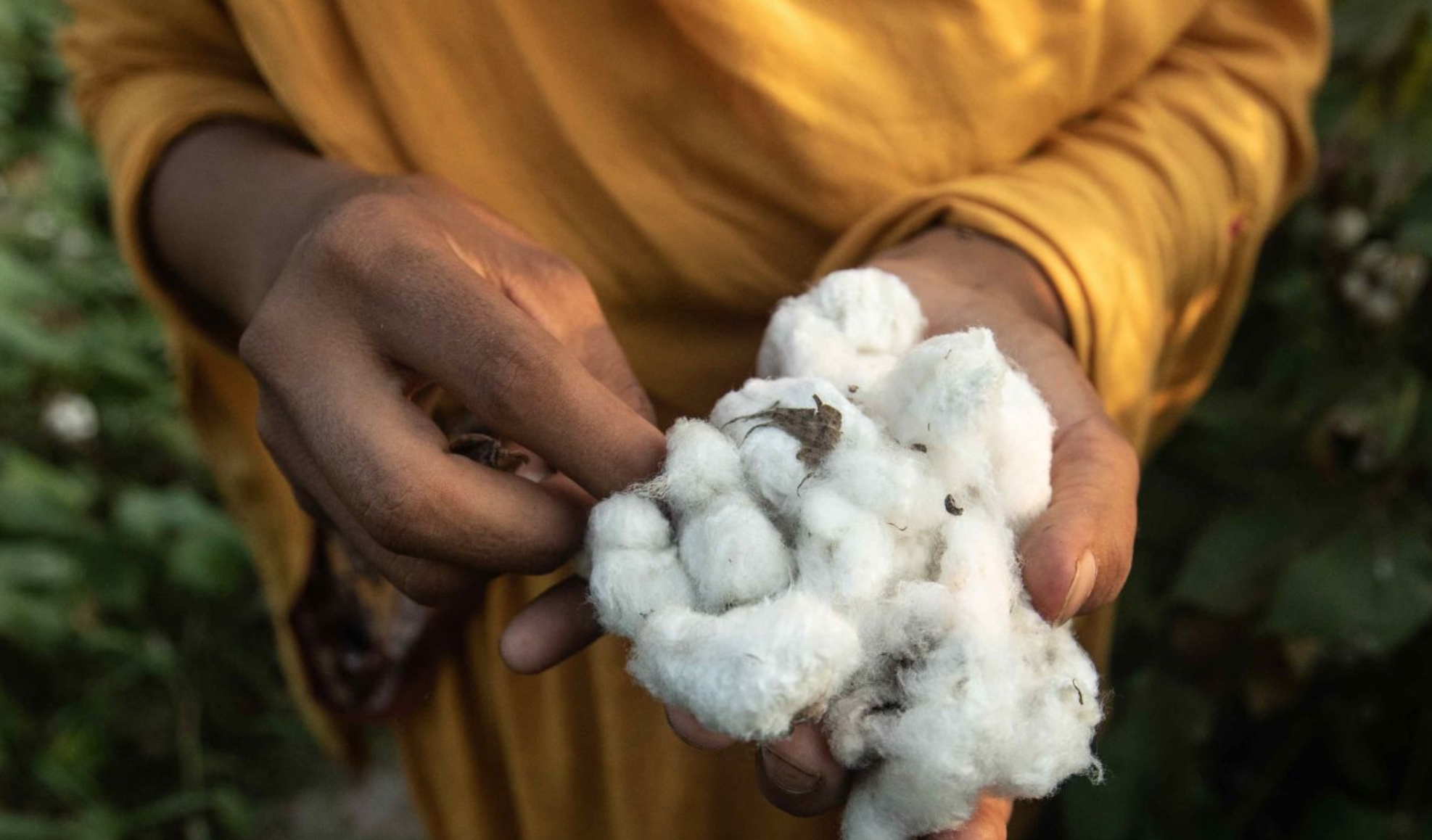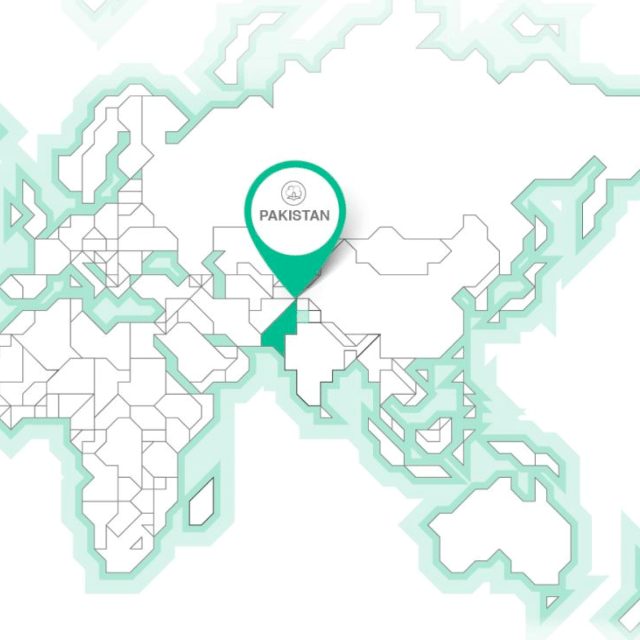
Better Cotton in Pakistan
Pakistan is the sixth-largest producer of cotton in the world. It also has the third-largest cotton spinning capacity in Asia, with thousands of ginning and spinning units producing textile products from cotton.
As of the 2021-22 season, Pakistan is the third-largest producer of Better Cotton globally. We launched a Better Cotton programme in Pakistan in 2009 to help the country’s rapidly developing cotton industry grow cotton more sustainably and improve the livelihoods of the approximately 1.5 million smallholder farmers who rely on cotton for a living. As the country moves away from sugar production in anticipation of water-scarce conditions caused by climate change, more farmers are growing cotton since it is naturally more drought-resistant. Together with our partners, we are supporting more of these farmers to become Better Cotton Farmers.
Better Cotton Partners in Pakistan
Better Cotton’s Programme Partners in Pakistan are:
- The Centre for Agriculture and Bioscience International Pakistan (CABI)
- The Central Cotton Research Institute (CCRI)
- Rural Business Development Center (RBDC)
- The Rural Education and Economic Development Society Pakistan (REEDS)
- Research and Development Foundation (RDF)
- Sami Foundation
- Sangtani Women Rural Development Organization
- WWF Pakistan
Pakistan is a Better Cotton Standard Country
Find out what this means
Which regions grow Better Cotton in Pakistan?
In Pakistan, the majority of cotton is grown in two regions — Punjab and Sindh.
When is Better Cotton grown in Pakistan?
In Pakistan, cotton is planted from April to June and harvested from August to December
To find out more about Better Cotton’s programme in Pakistan, check out the video below.
Pakistan is a Better Cotton Standard Country
Sustainability challenges
Cotton farmers in Pakistan are feeling the effects of climate change as unpredictable weather patterns and extreme heat are shortening growing seasons.
This is also leading to increased pests, especially the whitefly and pink bollworm, which can result in farmers becoming more reliant on pesticides.
High input costs and low market prices for cotton leave many of Pakistan’s smallholder cotton farmers struggling to earn enough to support themselves and their families.
Despite this, in some regions, cotton is the only option for farmers, which means increased productivity is key to creating better livelihoods.
Our Programme Partners in Pakistan help Better Cotton Farmers address these challenges by keeping them informed of upcoming weather conditions and training them on good pesticide, fertiliser and water use practices.
They are also promoting women’s empowerment through training and projects. Learn more in the stories below.
Find out more about the outcomes farmers are experiencing by participating in the Better Cotton programme in our latestAnnual Report.
Stories from the Field
Better Cotton Programme Partners bring women together so that female Better Cotton Farmers can share their experiences. Through these events, they promote the message that women should be able to fulfil their dreams, and explain that as a Better Cotton Farmer, they can access the tools, knowledge and opportunities they need to succeed.
I decide exactly how my additional income is spent, and I feel proud of my decision to participate in this project and work independently, running my own business and making all the decisions. I enjoy what I’m doing and feel happy that I’m contributing to keeping the environment healthy.
Eliminating Child Labour: How Better Cotton Decent Work Training Influenced a Farmer in Pakistan to Send His Son Back to School
Jam Muhammad Saleem is a Better Cotton Farmer in Pakistan. When his eldest son, Muhammad Umar, turned 12, Saleem saw no choice but for him to leave school to work alongside him and his wife to tend their farm near the village of Jhangar Marha. But just a year later, his outlook changed completely. Now, he is convinced that education will give all five of his children the best start in life. The reason? Better Cotton training.
Get in touch
Contact our team via the contact form if you’d like to learn more, become a partner or you’re a farmer interested in farming Better Cotton.
